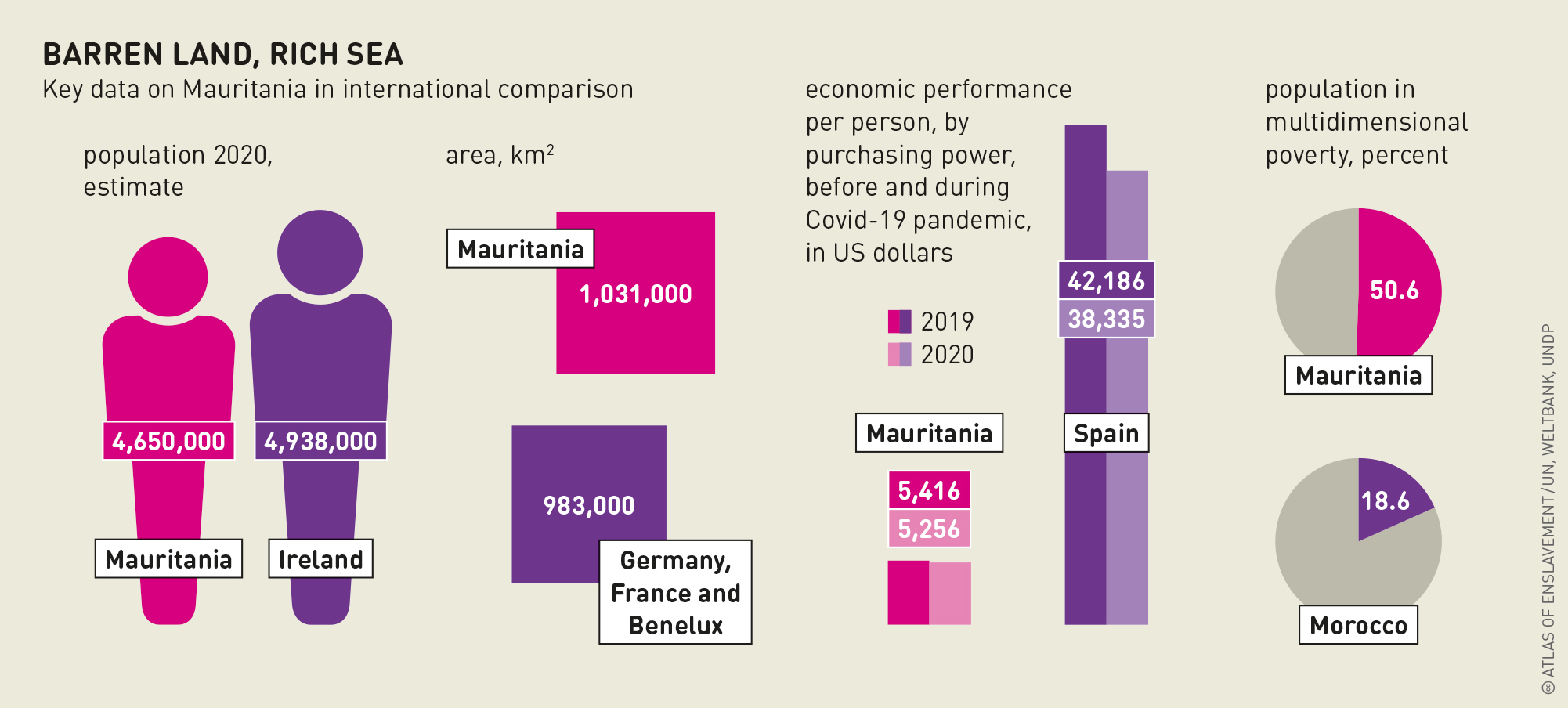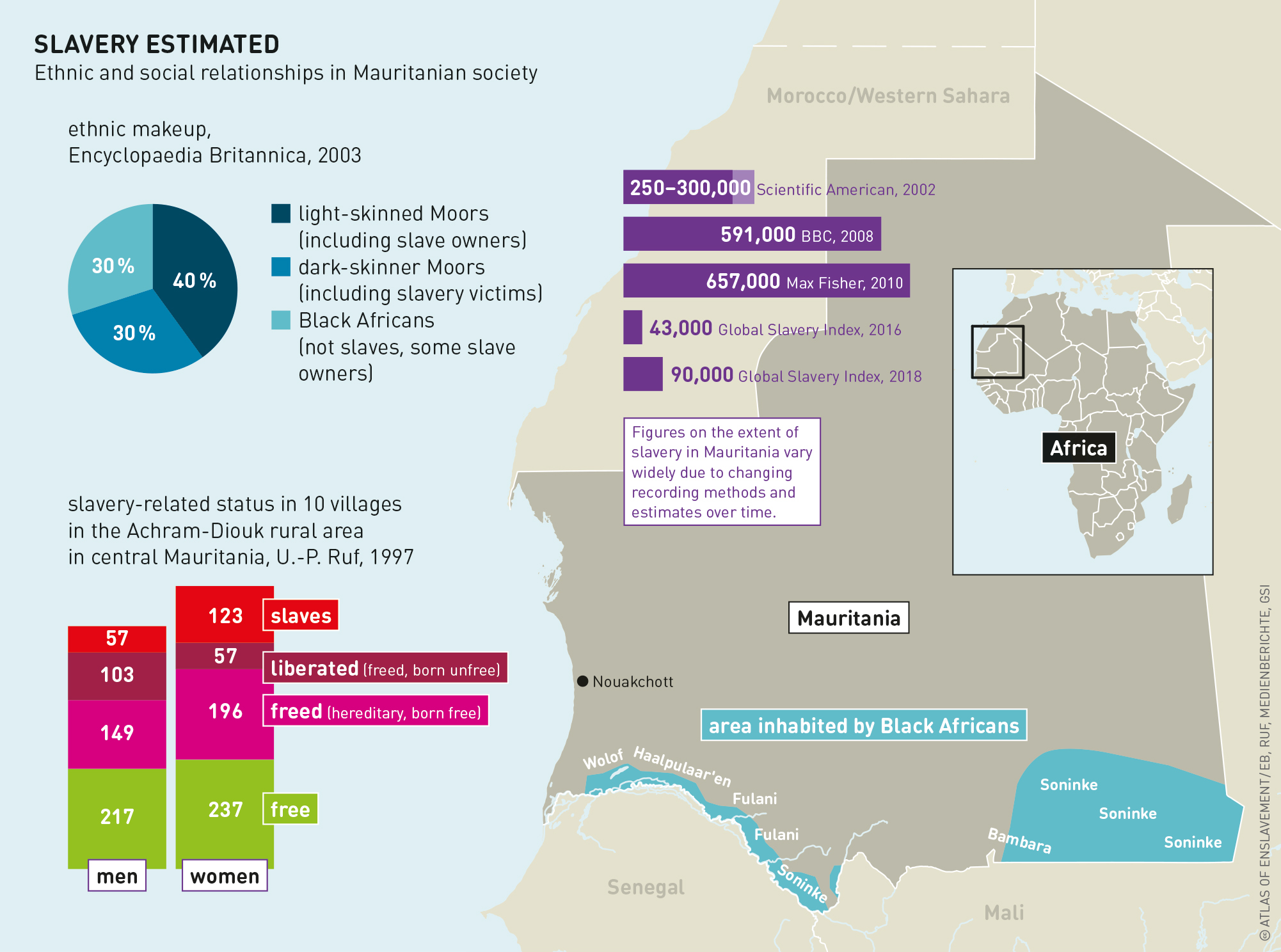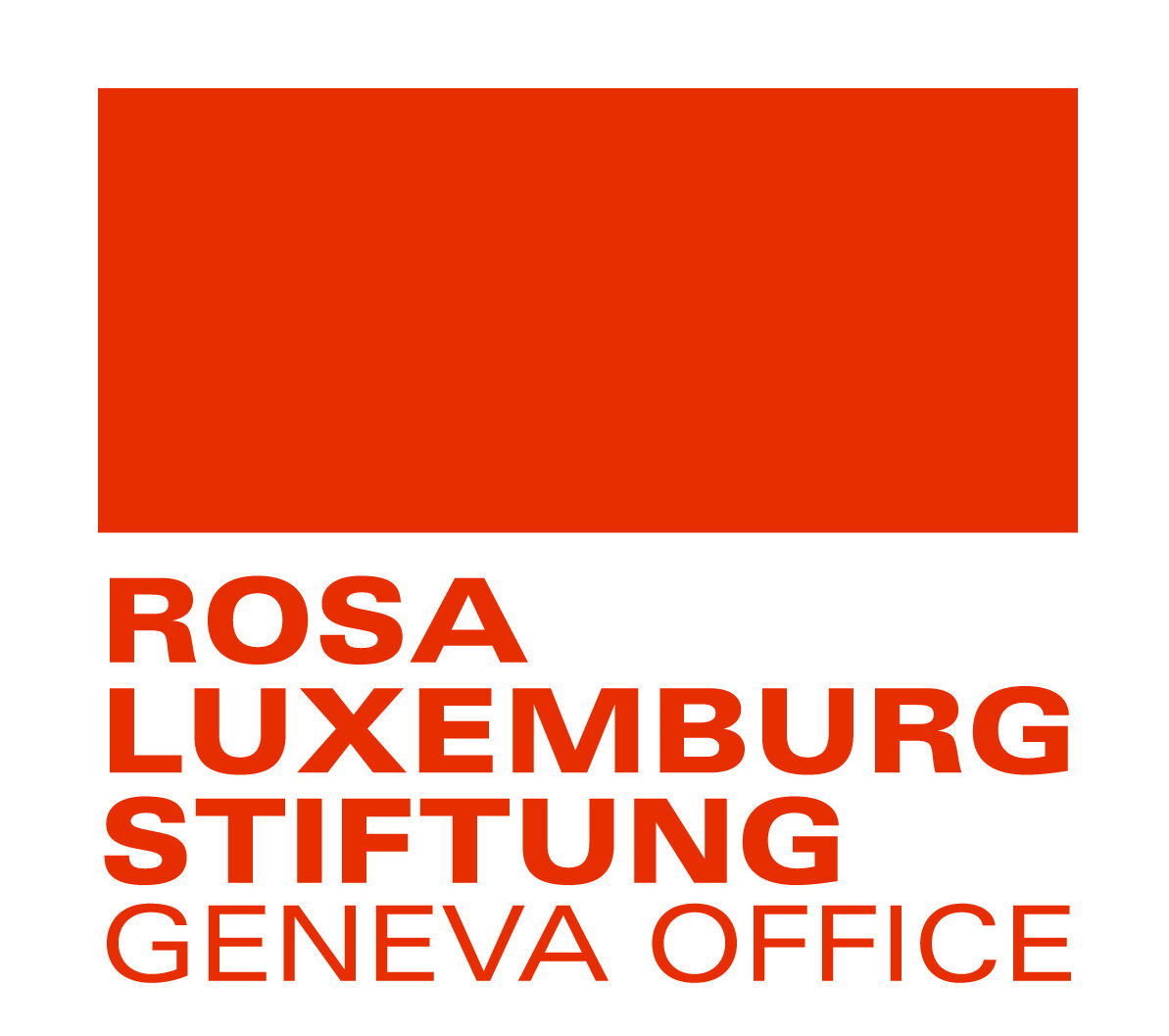Slavery has deep roots in Mauritanian society. Born into slavery and indoctrinated from an early age, many in the system do not even realize that another life is possible. The Mauritanian government has outlawed slavery on paper but does little to fight it in practice.
Mauritania is home to one of the largest systems of slavery in the world. Although it was officially abolished in 1981 and criminalized in 2007, the practice still continues. Today, enslaved Mauritanians, who are mainly Black, are victims of abuse, psychological manipulation, sexual violence, forced starvation and torture.
The roots of today’s system of slavery can be traced to the arrival of the light-skinned Berbers and Arab Moors in the 8th and 11th centuries respectively. Their conquest of the region created a hierarchical caste system that enslaved dark-skinned native Haratines and other Afro-Mauritanian groups. Currently, Mauritania has the world’s sixth highest prevalence of slavery, with 21.4 victims per 1000 people, according to the Global Slavery Index. Some 90,000 Mauritanians are said to be enslaved, although the true number is likely much higher.

The system is lineage-based, or “chattel” slavery, meaning that the slave status is passed down through generations. Unlike in historical Western slavery, Mauritanian victims are not sold or traded. Instead, they are given as gifts by their masters at ceremonial occasions, destined to perform domestic and manual labour for the recipient.
Some enslaved people live on their own in what are known as adwaba villages. Here they work the land for their masters, who visit only to pick up the harvest. Life in these villages is marked by starvation and poverty; a secret CNN investigation in 2012 found that children were eating sand off the ground due to hunger.
Arab-Berber masters, who regard enslavement as normal, repeatedly mistreat their slaves. Rape, forced pregnancy and abortion, dismemberment and child murder are commonplace. Many enslaved Mauritanians are born as a result of the rape of women by their masters. Despite these traumatic experiences, the masters do not erect physical barriers to prevent victims from running away; religious manipulation means that attempts to escape are rare.
Enslaved Mauritanians usually cannot comprehend their potential freedom due to the deeply rooted values of religion-based casteism. They are raised into Islam from birth and taught that their paradise is tied to their master – a narrative supported by many religious leaders. Most contemporary international Islamic scholars, on the other hand, agree that Islam condemns the enslavement of other Muslims. Under the pretence of Islam, victims are brainwashed and coerced into accepting their own oppression. Enslaved individuals work in a culturally and geographically isolated environment without access to education. Therefore, they lack information on human rights or other interpretations of their religion.
The social and religious hierarchy goes beyond explicit slavery, placing all dark-skinned Mauritanians in a slave caste. Delegated to the “dirty” jobs, free Haratines and Afro-Mauritanians have limited access to food, clean water, education, healthcare, and income. This creates an impoverished environment that many regard as worse than enslavement.
The government actively perpetuates this system. The Global Slavery Index gives it a “C” grade – one of the worst in terms of its response to slavery. Government officials refute any claims that slavery still exists and praise themselves for eradicating it. However, most human rights organizations and international news sources suggest that the number of victims of slavery in the country is severely underestimated. International journalists are prevented from writing about slavery, and often need to enter Mauritania under false pretences to conduct secret investigations. Journalists who are caught are immediately arrested or expelled.

The government continues to crack down on anti-slavery activists. Since the 2007 criminalization law, more activists have been arrested than slave owners. Only one individual was found guilty of enslavement between 2007 and 2015: a slave owner who was sentenced to 6 months in prison. Three activists received the same sentence after drawing attention to the case.
In 2015, Mauritania passed a law declaring slavery a crime against humanity. It mandated sentences of 10–20 years and allowed third parties to sue on behalf of the victims. Nevertheless, national activist groups such as SOS Esclave and the Initiative for the Resurgence of the Abolitionist Movement (IRA) report that the police and judicial systems have not implemented these new mandates. Prominent activists continue to be arrested. In 2016, 13 IRA members were sentenced to up to 15 years in prison for taking part in a protest – a charge they deny.
The little progress that has occurred has been due to consistent activism and international pressure. Activists seek media attention, hold protests, help victims of slavery escape, and go to court. But real change must come from a fundamental shift in the political, legal, and religious fabric of Mauritania. Until then, Black Mauritanians will continue to suffer.
